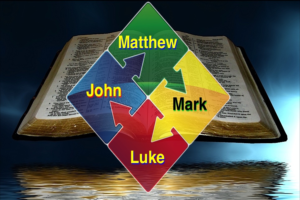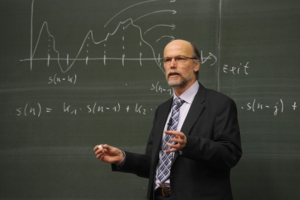Writing
THEOLOGY, SCIENCE & APOLOGETICS
Select a category from the drop down menu, or browse the latest articles below.

Book Review: Why Four Gospels? The Historical Origins of the Gospels (Second Edition), by David Alan Black
Black argues that the testimony of the patristics (which supports Matthean priority) is often not factored in to the scholarly assessment of the synoptic problem. Indeed, he observes, “Today the academic guild, both in Europe and North America, assumes that the patristic evidence is basically legendary and unreliable,” (p. 32).

Defending Inter-Synoptic Undesigned Coincidences: A Response to Kurt Jaros
Jaros does not seem to appreciate the value of casualness. He fails to understand how an undesigned coincidence can occur in the same document, or how a writer might provide information that unintentionally corroborates (in a manner that can be detected) some fact that the said author is also aware of.

Can a Christian Lose Their Salvation? An Analysis of the Warning Passages in Hebrews
The purpose of this paper is to evaluate the Biblical evidence on whether a professing Christian who walks away from the faith forfeits their salvation, with a particular focus on the book of Hebrews.

Finding Contradictions Where There Is None: A Review of Jesus, Interrupted (Part 3)
Since it is a fair assumption that Ehrman has chosen his best and, to his mind, most convincing examples of alleged contradictions in the gospels and Acts, the abject failure of Ehrman’s proposed contradictions should give us renewed confidence in the substantial trustworthiness of the Biblical accounts.

Unexplained Allusions and the Credibility of the Gospel Accounts
An unexplained allusion refers to when a source mentions superfluous details that are not relevant to the story. Typically, when inventing a story, one would want to minimize unnecessary details, especially if those unnecessary details are subject to investigation.

Artless Similarities: Another Category of Evidence for the Reliability of the Gospels
This category of evidence, though seldom discussed in contemporary apologetics literature, contributes to the cumulative case for the substantial trustworthiness of the gospel accounts.

More Misrepresentations and Distortions by Bart Ehrman: A Review of Jesus, Interrupted (Part 2)
With Bart Ehrman I regrettably have learned never to trust him to accurately represent his sources since, from past experience, I know him to be misquoting or misrepresenting his sources far more often than he accurately represents them.

Why You Should Not Be Intimidated by Bart Ehrman: A Review of Jesus, Interrupted (Part 1)
The next time a scholar who holds a PhD and a professorship position at a major University, like Bart Ehrman, attempts to challenge your confidence in the reliability of Scripture, do not be intimidated. Instead tell him that you would like to read his sources for yourself.

If Christianity is True, Then Why Do So Many Intelligent People Reject It?
The popular stereotype of scientists and critical scholars as impartial investigators who are totally objective in their search after truth is not as clear as we might first be disposed to think. Nobody does their scholarship in a vacuum, and everybody brings their presuppositions and preconceived ideas to the table when evaluating evidence.